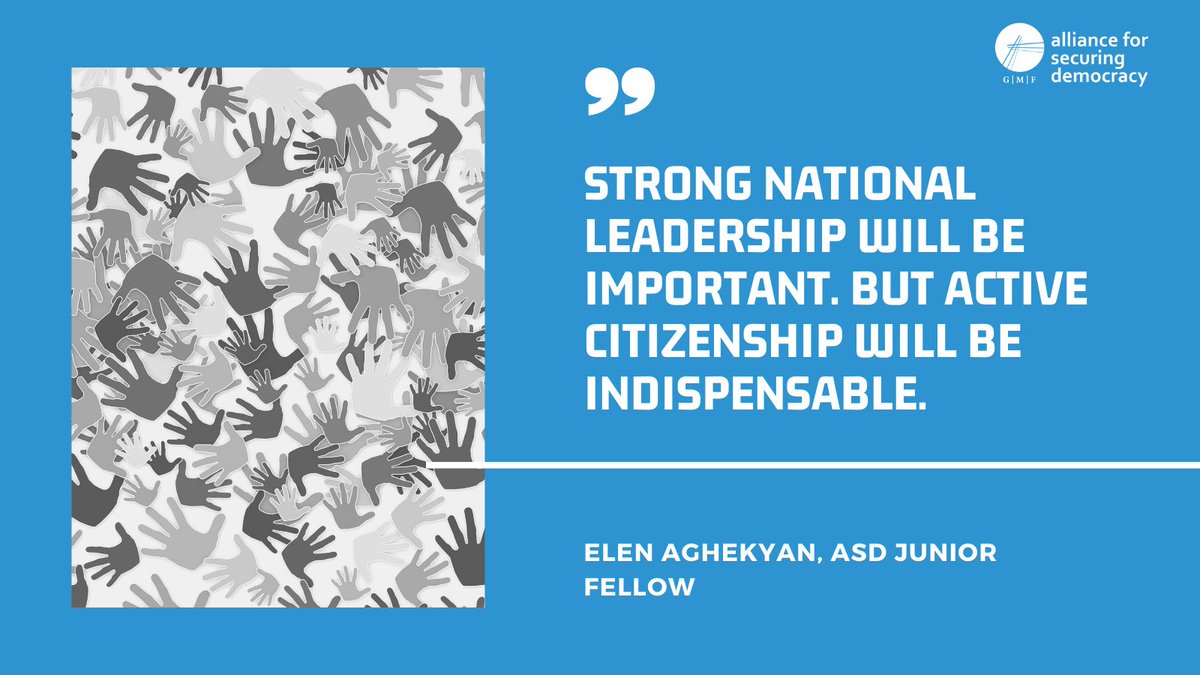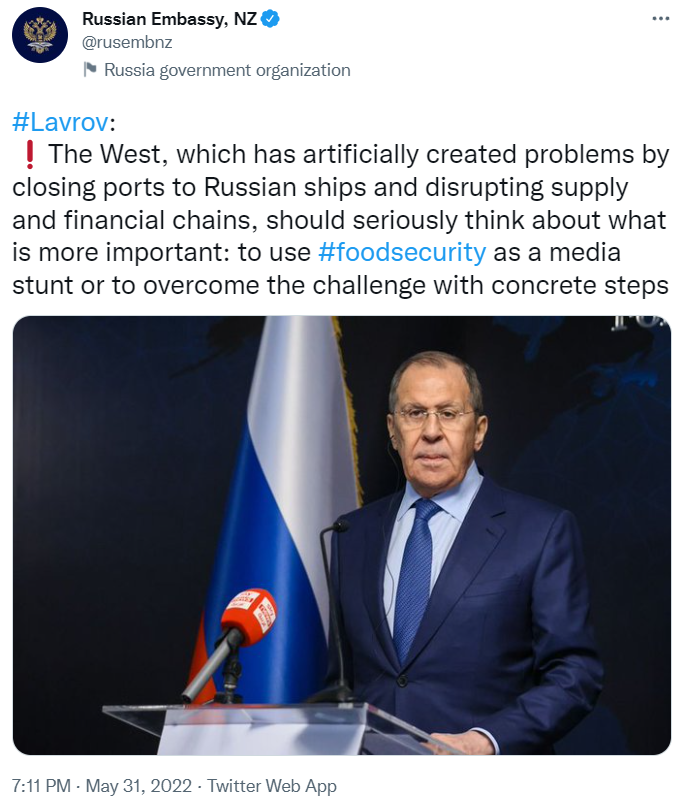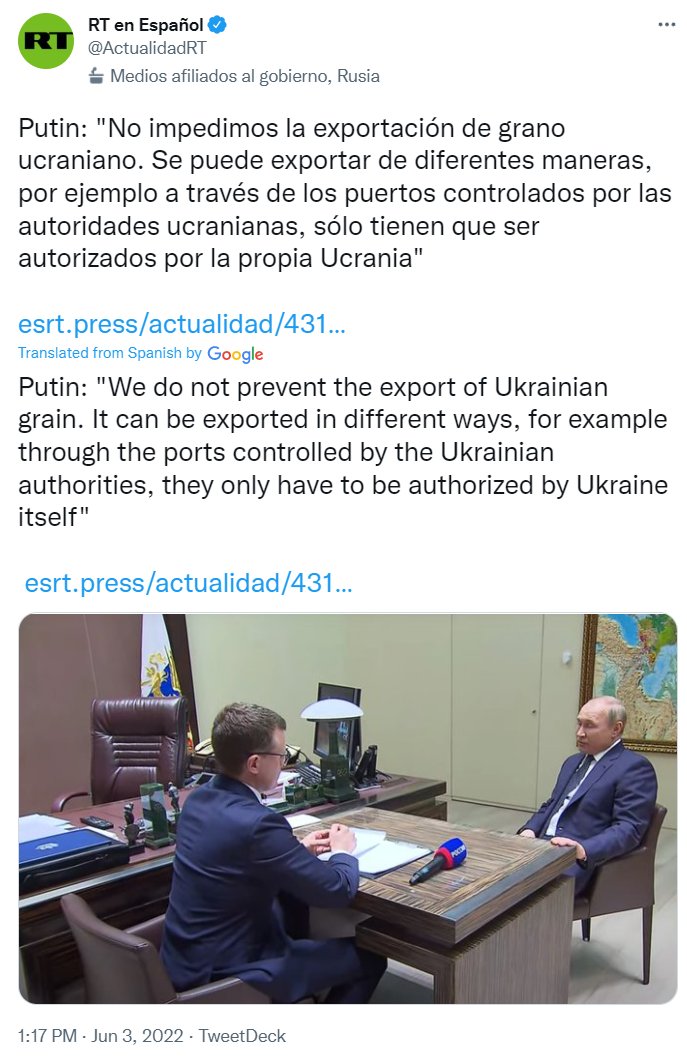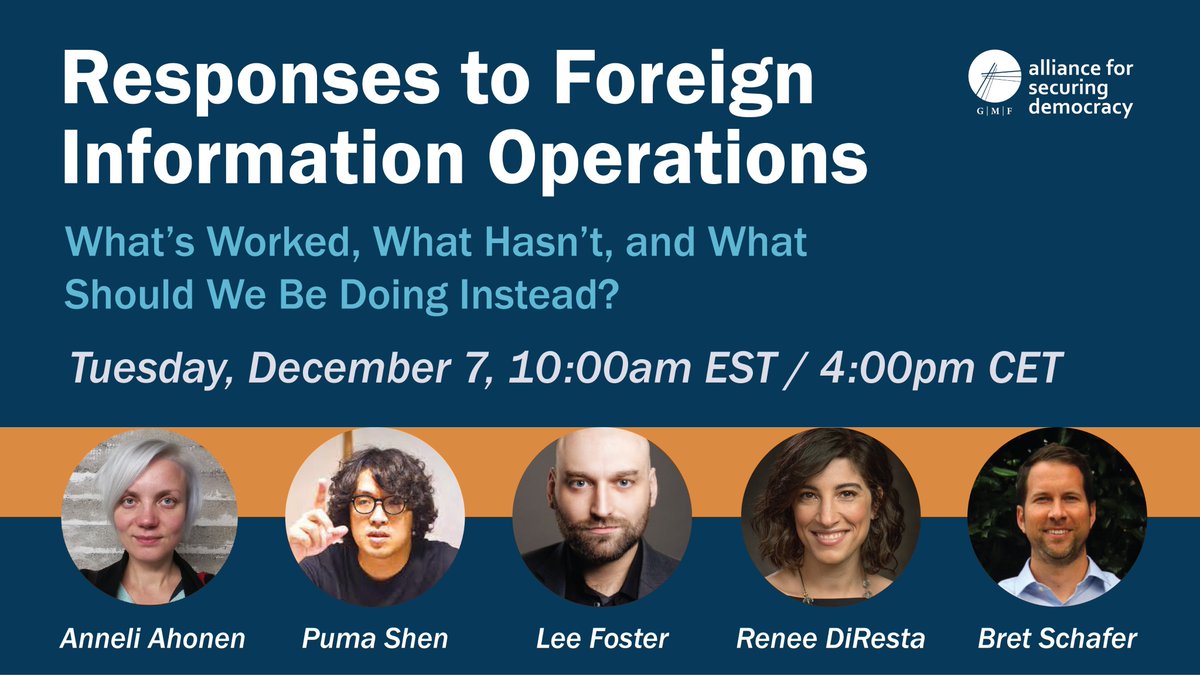Starting tomorrow, President Biden will bring together leaders from 110 countries and governments for a virtual #SummitforDemocracy.
ASD experts lay out what to watch over the next two days. 🧵👇
#DemocracyDecember
securingdemocracy.gmfus.org/what-to-watch-…
ASD experts lay out what to watch over the next two days. 🧵👇
#DemocracyDecember
securingdemocracy.gmfus.org/what-to-watch-…
Director @LauraLThornton will be looking out for several big picture things at the #SummitforDemocracy, including:
👉how inclusive the event is
👉how much the summit focuses on innovation and sharing solutions
👉how countries crafted their "commitments"
👉how inclusive the event is
👉how much the summit focuses on innovation and sharing solutions
👉how countries crafted their "commitments"

If handled carefully, the #SummitforDemocracy could tighten relationships based on shared values, but if handled poorly, it could prove divisive. "The messaging will have to be perfect if the Biden team is to walk this tightrope successfully," @ZackCooper says. 

Deputy Director David Salvo will be watching to see how the administration addresses the US' own democratic backsliding at the summit. "From the insurrection in January to state laws politicizing the administration of elections, we have plenty of challenges ourselves," he says. 

Autocratic actors are increasing their attacks on democracy, and they're finding increasingly fertile ground for their efforts, @davidalanlevine warns. The #SummitforDemocracy could go a long way towards confronting these challenges. 

"Ideally, the summit would kick-off a global effort similar to the COP process for climate change, with clear commitments, targets, and regular reporting. Yet without true buy-in from the participants, building such a forum may prove too challenging," @kristineberz says. 

Information manipulation should receive significant attention during the #SummitforDemocracy, Bret Schafer says. But it's "hard to imagine, given the list of invitees, that the summit will produce much more than platitudes, unenforceable pledges, and vague commitments." 

The White House has already kicked off the week leading up to the #SummitforDemocracy with a bang.
This sets a very high bar for other democracies to match the U.S. level of ambition at the summit later this week, @JoshRudes argues.
This sets a very high bar for other democracies to match the U.S. level of ambition at the summit later this week, @JoshRudes argues.

While the summit won't stop malign interference attempts, @TypeMRT hopes that participants will coalesce around the idea that a stronger collective cyber deterrence strategy is necessary to prevent further erosion of democratic institutions and backsliding. 

While much of the conversation about the summit has focused on which countries were given a place at the table, far more important is a look within and across borders, at the citizens whose active participation ultimately fuels the democratic process, @elen_aghekyan says. 

The U.S. should not miss out on a great opportunity to push for closer CEE-Taiwan ties, and the #SummitforDemocracy is the highest profile forum to make this happen, @barros_bryce says. 

Europeans are intrigued to see what Washington can come up with to reinject some confidence in democratic values and institutions. On the other hand, they're worried that the focus on democracy risks creating divisions in both NATO and the EU, @EtienneSoula explains. 

Follow along over the coming days as we track the #SummitforDemocracy and autocratic actors' messaging against it.
securingdemocracy.gmfus.org/what-to-watch-…
securingdemocracy.gmfus.org/what-to-watch-…
• • •
Missing some Tweet in this thread? You can try to
force a refresh



















